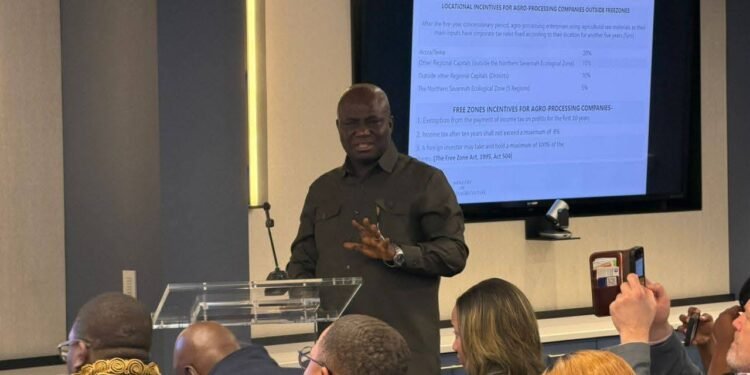Ghana’s gross forex reserves (excluding oil funds and encumbered assets) will end 2021 at US$7.6 billion, or 2.9 months of external payments, according to Fitch Ratings.
Fitch Ratings explains that Ghana’s reserve coverage is lower than other countries with similar rating actions, however, a structural improvement in the current account deficit (CAD) that buoyed up the growth in oil production has improved reserves coverage.
Ghana’s current account deficit widened slightly to 3.2 percent of GDP in 2020 from 2.8 percent in 2019. Albeit, expectations are that the deficit will remain broadly stable over the next two years as a recovery in oil receipts is matched by a recovery in import levels.
According to the latest Bank of Ghana Statistical bulletin, Gross International Reserves reduced to US$8.3 billion as of March 2021 compared with US$9.9 billion in the same period in 2020. Hence, this forecast of US$7.6 billion at year-end 2021 by the Ratings Agency is on the downside.
Furthermore, a fall in non-resident holdings of domestic debt put some downward pressure on the cedi in 2020. Non-resident investment fell to 18.4 percent of total investment at year-end 2020, from 25 percent at year-end 2019.
However, the fall has begun to reverse. Fitch expects levels to remain at approximately 20 percent so long as there are no signs of further fiscal slippage or further direct central bank financing of the government as was the case in 2020.
It is also evident that, despite the external pressures of 2020, the cedi depreciated by 4 percent compared with 14% depreciation in 2019, its lowest since 2016. This was buoyed by the Central Bank’s forex forward auctions in the year as well as the Bank’s directive to halt the payment of dividends for the year.
Central Bank’s domestic gold purchase programme
Against this backdrop, the Bank of Ghana recently launched a domestic gold purchasing programme which will allow the Bank improve the country’s forex reserve holdings. By this programme, the Central Bank will double its gold holdings in the next five years from 8.7 tonnes to 17.4 tonnes.
Following this, it will create an enabling and attractive environment for foreign direct investments and economic growth. It will also enable the Bank leverage its gold holdings to raise cheaper sources of financing to provide short-term foreign exchange liquidity.
Accordingly, by raising forex reserves, the pass-through effect means that this will improve currency stability and reduce interest rates, while providing liquidity into the economy, where in excess liquidity will lead to rising inflation.
Nonetheless, with this initiative, the Central Bank complements its traditional way of building forex reserves through holding reserves in; reserve currencies, government securities of reserve currencies, bonds, treasury bills, et cetera.
Fitch Ratings assigned a rating downgrade to Ghana to ‘B’ negative from a ‘B’ stable citing rising debt levels and fiscal deficits as the main indicators for the rating action.
According to Fitch Ratings, Ghana’s recent rating downgrade may turn positive through sustained improvement in Ghana’s external liquidity, such as an increase in international reserves occurring through non-debt-creating flows.
This qualifies as an important way to ease the reliance on reserves from debt-creating flows.
READ ALSO: FDI flows to Ghana declines by 52% in 2020- UNCTAD























